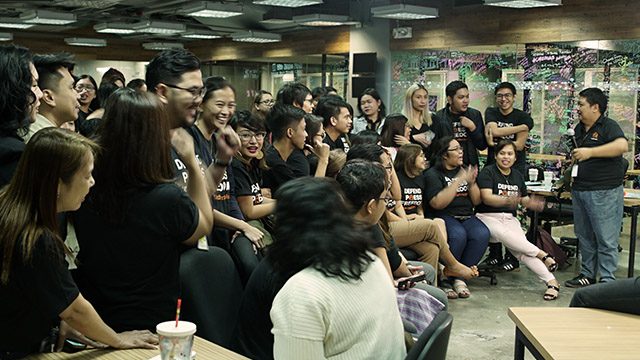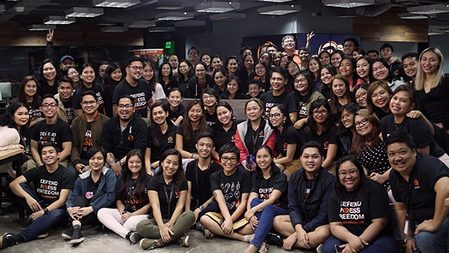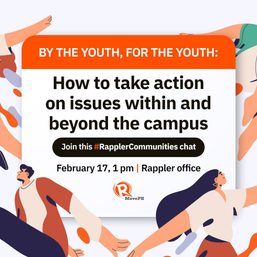SUMMARY
This is AI generated summarization, which may have errors. For context, always refer to the full article.

Journalism and ethics go hand in hand because credibility is what makes journalists effective in what they do: truth-telling. Diminished credibility also diminishes our ability to be believed by our audience and our public. This is why we shun any hint or perception of unethical behavior.
As practitioners, our choices will always reflect on our organization and the profession of journalism. Journalism is about public service. It’s not about self-indulgence, personal interest, or even privileges. Whatever we do is in the interest of telling stories, providing useful, inspiring, or entertaining information.
With these principles in mind, we have internal guidelines that help us navigate ethical minefields. It’s a work in progress that we collectively enrich and fine-tune.
We have also drawn up a set of standards that we follow when we publish our own stories, use content from non-Rappler individuals and groups, and commit errors.
Below are some of them:
Corrections and fact checking
With accuracy at the core of our mission of truth-telling, Rappler strives to produce clear and compelling stories, videos, graphics, and social media content that are free of errors and situated within the proper context.
Reporters, researchers, and multimedia producers are expected to verify all details in their stories and videos, from names and positions of personalities to background information. Editors are responsible for reviewing, polishing, and approving content for publication. We value attention to detail, knowing that it is essential to the kind of high-quality work that we are committed to producing.
When Rappler does commit errors, whether minor or major, we treat each one with urgency. We often spot these errors by proofreading each other’s work. In some cases, readers alert us to corrections or clarifications that may need to be made. We welcome public feedback as part of our fact-checking process.
Minor errors such as misspelled words, grammatical slip-ups, and incorrect punctuation marks are promptly fixed once spotted.
Major errors such as those involving facts would require additional verification, including coordination with reporters, double-checking with credible sources, and referring to official documents. Once we have determined that a major error was committed, the story, video, graphic, or social media post is immediately rectified. An Editor’s Note is also added to stories for full transparency and disclosure of the correction that has been made.
Links to stories with Editor’s Notes are compiled in a corrections page, which is published once a month. The corrections page for a particular month is then updated as needed. Links to all corrections pages, meanwhile, are found here.
As a general policy, we do not unpublish or take down stories. When we receive takedown requests due to a supposed error in a story, we first review the story and then make a correction, if necessary. When we are asked to take down a story because there are new developments – such as a person initially accused of a crime and then later cleared of charges in court – we update the story as needed.
Rappler’s fact checking also goes beyond our own stories. As part of our commitment to uphold truth and battle disinformation, we fact-check statements by public officials and other prominent personalities which could shape public opinion, affect people’s safety, or incite hate. We also debunk false claims and hoaxes spread through social media and messaging channels.
For our external fact checking, we follow this workflow:
- We spot potential claims for fact checking through the events we cover, public posts by individuals or groups on social media, and submissions from our readers.
- To select content to fact-check, we assess the relevance of the claim to the public and its connection to current events, the impact of the claim on the subject, and the potential of the claim to go viral or affect the public.
- Once a claim is selected, researchers conduct verification by checking names, places, dates, numbers, and other data. Reporters provide assistance when a claim falls under their respective beats or areas of expertise.
- After the facts have been established, the rating for a fact-check article is determined. We provide readers with as much information as possible to explain how we arrived at a particular rating.
- There are at least two layers of review by editors before a fact-check article is published.
Curated, crowdsourced, partner-shared content
Rappler’s main source of visual content comes from its multimedia reporters and visual journalists, including photos and video from trusted freelance photojournalists.
Rappler also partners with organizations and government agencies with whom it shares a common goal or advocacy such as disaster risk reduction, press freedom, fight against disinformation, neutralizing oppressive laws, women’s rights, human rights, LGBTQ+ rights, and environmental causes. Partnerships are clearly defined, including resource sharing of photos and video. In return, partners get to amplify their advocacies to Rappler’s engaged audience.
A fraction of Rappler’s content is crowdsourced from social media. It curates content in the spirit of disaster response, road safety, and peace and order, among others. Members of Facebook groups hosted by Rappler understand the sharing nature of their communities and are free to contribute or withhold their content. Rappler fastidiously determines ownership of posted content it wants to repost and asks the owner for permission. Rappler also ensures crowdsourced photos and video indicate their provenance: captions indicate a photo’s owner, while reposted video are hardcoded with the name of the owner. All commissioned work from a netizen is compensated in cash, kind, or services.
Content from civic-engagement arm members
Rappler’s civic engagement arm, MovePH, has a community of citizen journalists called Movers who contribute their content for free. Movers learn about issues that they care about, get a practical handle on social media campaigns, and get to see their bylines published on Rappler. MovePH not only provides a venue for the idealism and advocacy of its members, it also gives them experiences invaluable to their present and future careers. As Movers, they can also avail of free multimedia trainings and webinars held by Rappler on mobile journalism, video and photojournalism, and video editing and script writing.
All citizen journalists commissioned for a project are compensated.
Moderating comments
Rappler values intelligent, issue-based conversations because we believe they are critical steps toward change. Being part of the Rappler community comes with a responsibility.
We encourage readers to use the comments section on Rappler’s Facebook page to voice their thoughts on our stories. We ask that they keep a level head and an open mind as they discuss the complexities of issues.
We want the comments section to be a place for a critical exchange of ideas. Below are some of the guidelines we ask our readers to follow to ensure adherence to Rappler’s ethical standards and values:
1. Stay on point. Off-topic comments, even nicely written ones that have nothing to do with the story, will automatically be deleted.
2. Obscenities will not be tolerated. We use a set of keywords that will immediately filter out posts with curse and offensive words. Posts that contain obscenities and expletives will not see the light of day.
3. No room for hate. To ensure that Rappler remains a safe space for our community, we will strictly enforce a zero-tolerance policy against sexist, racist, homophobic, and other discriminatory language or views.
4. No personal attacks. Treat everyone with respect. Attempts to harass, insult, and/or damage the reputation of others are unacceptable. Choose your words wisely. If you feel the need to be a bit more aggressive to stress a point, make sure it is not at the expense of another person. Avoid name calling. If you make an accusation, substantiate it. When in doubt, follow Wheaton’s Law.
5. No spam, porn, or illegal material. This is pretty much self-explanatory. You know the drill.
6. No smear campaigns. Goons for hire have found their way to the internet, trolls are paid to spread black propaganda. Don’t forget, libel is a criminal offense. It constitutes but is not limited to “malicious imputations that tend to cause dishonor or discredit anyone.”
7. Respect privacy. Comments mentioning personal information (whether your own or someone else’s), including one’s home address, contact number, or email address, will be deleted.
Rappler’s Facebook page is moderated by a team of community managers. We reserve the right to ban users and/or delete comments that are threatening, disrespectful, offensive, inciting violence, or are otherwise unacceptable. Readers with questions or suggestions are encouraged to email them at feedback@rappler.com. – Rappler.com
How does this make you feel?




